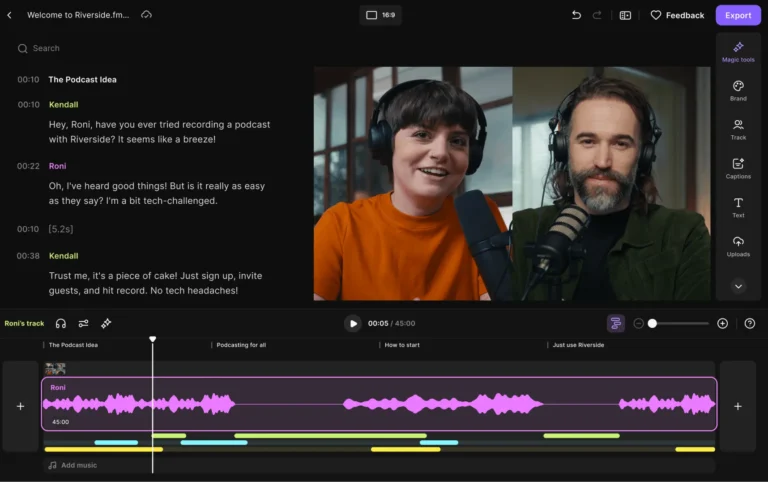Trending Article
OpenAI Launches Search Feature in ChatGPT: A Game Changer for AI and Search
On Thursday, OpenAI unveiled a groundbreaking search feature within its popular chatbot, ChatGPT, marking a significant step in its efforts to compete with established search engines like Google and Microsoft’s Bing. Dubbed SearchGPT, this new functionality promises to deliver real-time information, including sports scores, stock quotes, news, and weather updates, effectively transforming how users seek information online.

The Rise of SearchGPT
OpenAI’s introduction of the search feature follows months of beta testing, which began in July. The aim is clear: to provide a more intuitive and conversational way for users to search the web, ultimately positioning ChatGPT as a serious contender in the information retrieval landscape. With this launch, OpenAI aims to leverage its advanced AI capabilities to deliver information in a manner that feels more like a dialogue than a traditional search engine query.
In a Reddit AMA on the same day as the launch, OpenAI’s engineering VP, Srinivas Narayanan, clarified that while Bing plays a role in the backend, ChatGPT’s search capabilities are powered by a range of services, making it a multi-faceted tool. This clarification underscores the complexity and depth of OpenAI’s technology stack.

A Direct Challenge to Google
The launch of SearchGPT comes at a time when Alphabet, Google’s parent company, is facing increasing scrutiny from investors. Concerns have been mounting that OpenAI’s advancements could siphon off market share from Google in the search arena. Following the announcement, Alphabet’s shares dipped by about 1%, reflecting investor anxiety over OpenAI’s potential to disrupt the established order.
Sam Altman, CEO of OpenAI, expressed his excitement about the new feature, calling it his “favorite feature” launched since ChatGPT’s inception. He emphasized how the search tool allows users to pose questions and receive follow-up responses in a conversational format, echoing the kind of interaction one might have with a knowledgeable friend. This conversational model is designed to facilitate complex research and provides users with a more seamless experience.
Understanding the Technology Behind SearchGPT
At the core of SearchGPT is a refined version of OpenAI’s most advanced model yet, GPT-4o. This model has been fine-tuned to improve its ability to retrieve and summarize information from various sources. The integration of real-time web searches with partnerships from news and data providers enhances its functionality, making it not just a chatbot but a versatile information retrieval system.
OpenAI has also focused on user experience. Users can trigger a web search by clicking an icon, or the system can automatically conduct searches based on user inquiries. This flexibility allows users to engage with the chatbot in a way that feels natural, encouraging them to explore topics in greater depth.
A Wealth of Sources
To enrich the information provided by SearchGPT, OpenAI has collaborated with a wide array of news partners, including prominent organizations like The Associated Press, Reuters, Financial Times, and Vox Media. This partnership strategy not only ensures diverse and credible information but also enhances the user experience by allowing access to articles and blog posts through easily navigable links.
Users can interact with the search results more dynamically, with the chatbot offering citations and sources for the information presented. This feature not only lends credibility to the responses but also encourages users to delve deeper into the topics of interest.
The Implications for the Search Landscape
The launch of SearchGPT carries significant implications for the search engine market, particularly for Google, which has dominated this space for years. As users become increasingly familiar with AI-powered tools, their expectations around how information is presented and retrieved will likely shift.
A Shift in User Behavior
The conversational nature of SearchGPT is designed to reshape user behavior. Instead of rigid keyword searches, users can now engage in fluid dialogues with the AI, allowing for a more nuanced exploration of topics. This model could encourage users to rely more heavily on AI for information retrieval, potentially diminishing the role of traditional search engines.
Moreover, the increasing sophistication of AI models like GPT-4o suggests that users may find AI-generated responses to be more informative and relevant than standard search results. As a result, companies like Google and Microsoft may need to innovate further to maintain their market share and relevance.
The Competitive Landscape
OpenAI’s latest move not only intensifies competition with Google but also places it in direct rivalry with Microsoft, which has invested nearly $14 billion in OpenAI. As OpenAI’s products increasingly overlap with Microsoft’s offerings, such as its AI tools and Bing search, the competitive dynamics in the tech industry are set to evolve.
During the Reddit AMA, Altman hinted at the future potential of the search feature, envisioning a time when search queries could dynamically generate custom web pages tailored to the user’s specific needs. This level of personalization and adaptability could further position SearchGPT as a transformative tool in the digital landscape.
Financial Context and Future Outlook
OpenAI recently closed a funding round that valued the company at $157 billion. This impressive valuation, buoyed by investments from a range of firms and tech giants, underscores the market’s belief in OpenAI’s potential. However, the company is also navigating a challenging financial landscape, expecting approximately $5 billion in losses against projected revenues of $3.7 billion this year.
As OpenAI expands its capabilities and product offerings, it will need to balance growth with sustainable financial practices. Investors will be keenly watching how quickly and effectively OpenAI can convert its technological advancements into revenue streams, particularly as the search feature gains traction.
Addressing Controversies and Challenges
Despite its impressive growth and innovation, OpenAI has faced its share of controversies, particularly concerning its transition to a for-profit structure and executive departures. Concerns have been raised about the company’s safety culture, with some former employees suggesting that product development has taken precedence over ensuring safety measures.
These internal challenges highlight the complexities of scaling a tech company amid rapid advancements and heightened scrutiny. OpenAI will need to address these issues head-on to maintain trust with users and stakeholders alike.






Pingback: Meta Unveils AI Tools To Give Robots A Human Touch